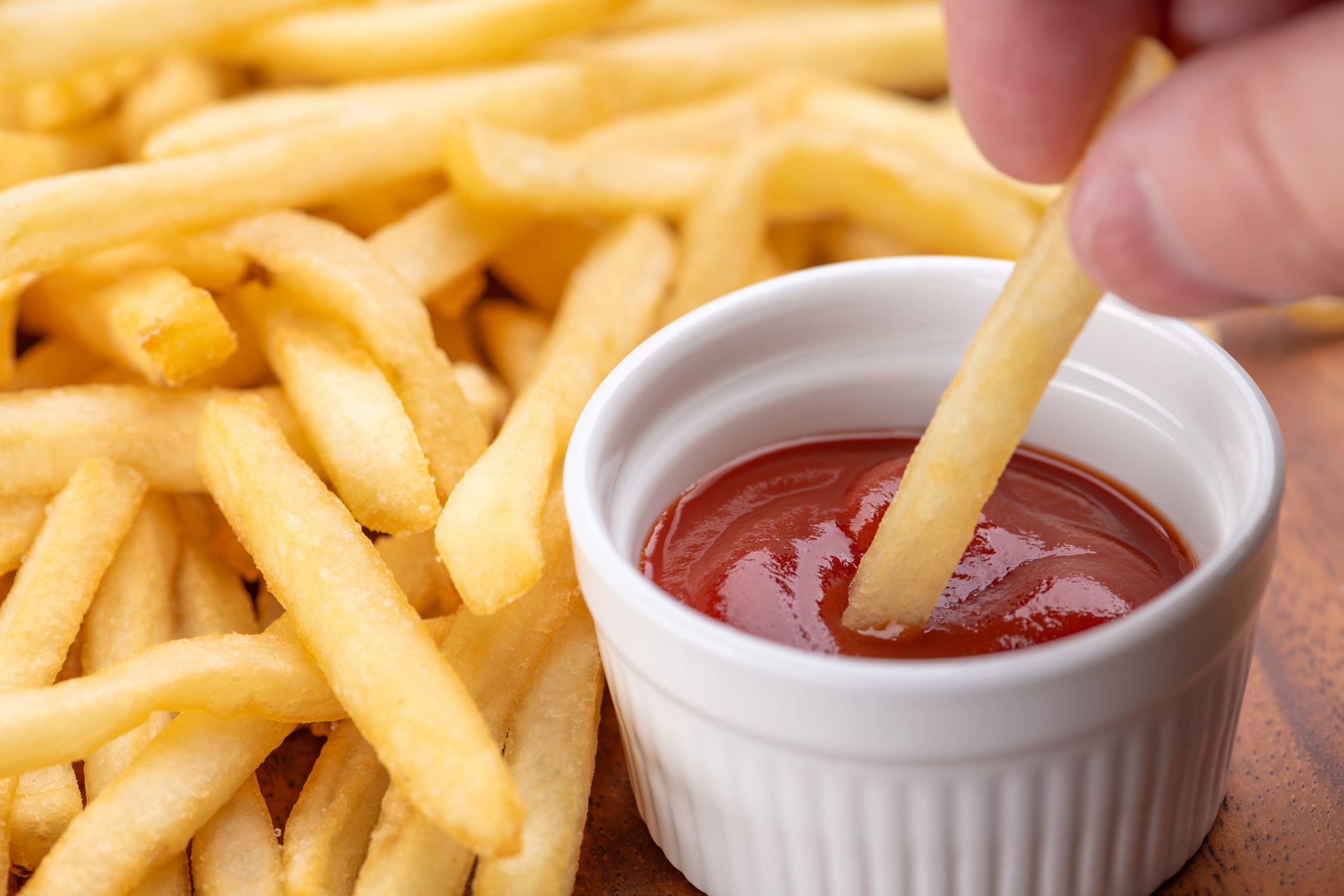Eating white bread and other foods considered to be proinflammatory can raise colon cancer patients’ risk of death from the disease, researchers said this week.
Of a study of more than 1,600 patients with stage III colon cancer, people who consumed the most of those foods — also including french fries, hot dogs, and soda — during a phase 3 clinical trial showed longer overall survival post-treatment compared to those on a proinflammatory diet. The patients who ate a proinflammatory diet had an 87 percent higher risk of death than those who consumed the least proinflammatory food.
Inflammation is the body’s immune response to stimulus, such as falling down or burning your finger. Both too little and too much inflammation can cause problems, and most chronic diseases are believed to be rooted in inflammation that lasts over time. Some of the foods that can contribute to inflammation have been linked to cancer risk.
“One of the most common questions that patients ask is what they should do after treatment to maximally reduce their risk of cancer recurrence and improve survival,” Dr. Sara Char, a clinical fellow in hematology and oncology at Boston’s Dana-Farber Cancer Institute, said in a statement. “These findings add to the published literature about the importance of dietary patterns and physical activity in outcomes of patients with colorectal cancer.”
Char was the first author of the research which was presented on Sunday at this year’s American Society of Clinical Oncology Annual Meeting.
“This study provides additional evidence that diet may be important for improving outcomes and survival in patients with stage III colon cancer,” co-author Dr. Kimmie Ng, also of Dana-Farber, said. “Further studies are needed to tailor specific dietary recommendations for patients with colon cancer, and to understand the biological mechanisms underlying the relationship between proinflammatory diets and survival.”
The use of the anti-inflammatory drug in the participants’ trial, which is known as celecoxib, did not have a significant influence on the relationship between diet and survival, but the authors also noted that those who engaged in higher levels of physical activity had the best overall survival outcomes.
Their findings come following previous research that showed systemic inflammation can increase the risk of colon cancer development and progression. Using anti-inflammatory drugs can reduce the risk of recurrence in selected patients with stage III colon cancer, the Dana-Farber researchers said. It remains unclear how much diet could affect cancer outcomes after treatment, but these findings add to a growing body of knowledge that could affect tens of thousands of Americans with colorectal cancer.

Some 150,000 people are diagnosed with colorectal cancer each year in the U.S. It is the second-most common cause of cancer deaths for men and women in the U.S., and is expected to cause about 52,900 deaths this year. The average five-year survival for patients with stage III colon cancer is around 80 percent, although between 25 and 35 percent of patients experience a recurrence of cancer during that time.
The researchers say that they plan to conduct more detailed investigations of the biological effects of diet and lifestyle on colon cancer outcomes, including those with metastatic colon cancer and those diagnosed at younger ages, under age 50.
The majority of Americans — as many as 57 percent — may be eating a diet that promotes inflammation, researchers at the Ohio State University found last year.
In 2018, a Harvard study found that people who ate foods that promoted inflammation had a higher rate of colorectal cancer compared with people who ate the least foods, with a 22 percent higher risk for men than women.

Eating white bread and drinking alcohol are linked to an increased risk for developing colorectal cancer. Whole grains have anti-cancer properties and eating fiber helps to reduce colorectal cancer risk, researchers told Fox News Digital in 2023. The next year, a study found potential risk for white bread intake.
Alternatively, consuming more dark leafy greens, vegetables, nuts, whole grains, and protein sources that are high in omega-3 fatty acids can help fight inflammation, according to UCLA Health. The Mediterranean diet may be the most beneficial, Johns Hopkins Medicine notes.
“I want to emphasize that people really need to focus on their pattern of eating — as opposed to eating a few particular foods — to reduce inflammation,” Dr. Edwin McDonald, a gastroenterologist at UChicago Medicine, wrote. “ There’s no miracle food out there that’s going to cure people with chronic inflammation. You need to have an anti-inflammatory lifestyle and diet.”



